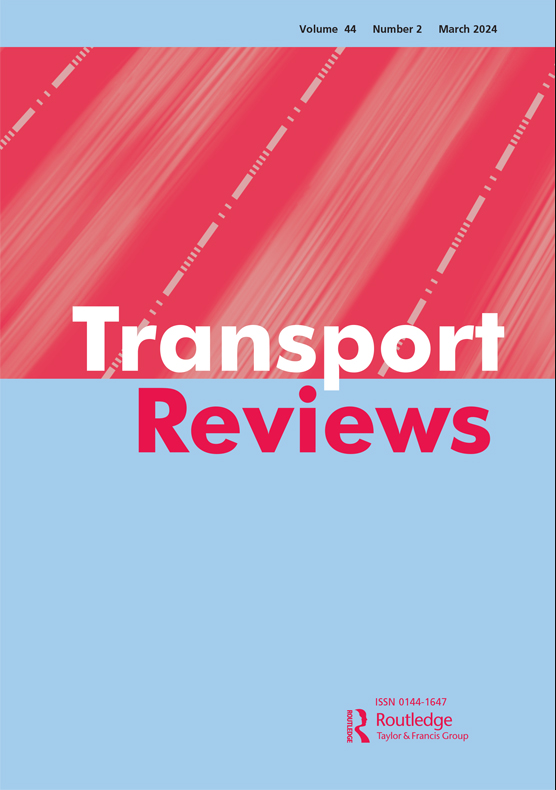Zero-car households – constraint or lifestyle choice? A systematic literature review of the factors affecting non-car ownership
IF 9.9
1区 工程技术
Q1 TRANSPORTATION
引用次数: 0
Abstract
At a time when global efforts to reduce CO2 and other emissions from transport are gaining momentum, this paper provides a novel, interdisciplinary systematic review of 106 peer-reviewed studies researching zero-car households. The review consolidates international knowledge on the individual and systemic factors influencing zero-car households at the micro (individuals or households), meso (groups or communities), and macro (governmental) scale. In addition to insights into effective policy interventions to reduce dependence on private car ownership, we offer two novel contributions to transport research. Firstly, we find that 75% of studies are uninformed by any social science theories which limits the actionable and generalisable insights that can be made on car reduction. Secondly, this is the first systematic review to draw a distinction between households which are zero-car by constraint (car-less) versus choice (car-free). This differentiation offers important insights into the contrasting needs and priorities of the two groups. A consistent finding across contexts is that low-income, child-free adults are closely associated with zero-car households. There is no evidence that zero-car householders have pro-environmental values but, in some countries, affluent and well-educated city-dwellers are choosing to live car-free. However, there remain practical and emotional barriers to becoming a zero-car household by choice. Effective policy interventions to encourage zero-car households are found to include residential parking controls and car clubs. The review deepens current understanding of car ownership trajectories and public acceptability of car use and ownership policies. It informs both academics and policymakers in addressing knowledge gaps critical for advancing sustainable urban mobility.
零车家庭——约束还是生活方式的选择?对影响非汽车拥有量因素的系统文献综述
在全球努力减少交通运输产生的二氧化碳和其他排放物的势头日益强劲之际,本文对106项同行评议的无车家庭研究进行了新颖的跨学科系统综述。该综述从微观(个人或家庭)、中观(群体或社区)和宏观(政府)三个层面整合了影响零汽车家庭的个体和系统因素的国际知识。除了对有效的政策干预以减少对私家车的依赖的见解之外,我们还为交通研究提供了两项新的贡献。首先,我们发现75%的研究没有受到任何社会科学理论的影响,这限制了可操作和可推广的见解,可以对汽车减少做出。其次,这是第一个系统的回顾来区分无车家庭(无车)和无车家庭(无车)。这种差异为两个群体的不同需求和优先事项提供了重要的见解。在各种情况下,一个一致的发现是,低收入、没有孩子的成年人与零车家庭密切相关。没有证据表明无车家庭有环保价值观,但在一些国家,富裕和受过良好教育的城市居民选择无车生活。然而,选择成为零车家庭仍然存在实际和情感上的障碍。研究发现,鼓励零车家庭的有效政策干预包括住宅停车管制和汽车俱乐部。该综述加深了当前对汽车拥有轨迹的理解以及公众对汽车使用和拥有政策的接受程度。它为学者和政策制定者提供了解决知识差距的信息,这对促进可持续城市交通至关重要。
本文章由计算机程序翻译,如有差异,请以英文原文为准。
求助全文
约1分钟内获得全文
求助全文
来源期刊

Transport Reviews
TRANSPORTATION-
CiteScore
17.70
自引率
1.00%
发文量
32
期刊介绍:
Transport Reviews is an international journal that comprehensively covers all aspects of transportation. It offers authoritative and current research-based reviews on transportation-related topics, catering to a knowledgeable audience while also being accessible to a wide readership.
Encouraging submissions from diverse disciplinary perspectives such as economics and engineering, as well as various subject areas like social issues and the environment, Transport Reviews welcomes contributions employing different methodological approaches, including modeling, qualitative methods, or mixed-methods. The reviews typically introduce new methodologies, analyses, innovative viewpoints, and original data, although they are not limited to research-based content.
 求助内容:
求助内容: 应助结果提醒方式:
应助结果提醒方式:


